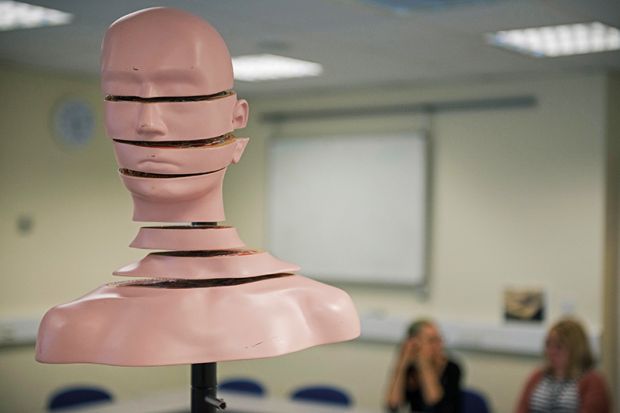The vice-chancellor of the University of Sussex has admitted that a “dramatic culture change” is required to eradicate a culture of bullying and harassment on his campus.
Adam Tickell told Times Higher Education that Sussex had “made mistakes” and “failed people” in the past, but that improving staff and student well-being was his top priority.
His comments follow the publication last year of a damning internal report, based on the experiences of more than 900 individuals, which warned that bullying was “widespread” and “endemic to the Sussex culture”.
Asked whether staff morale was low, Professor Tickell said: “Yes, there is a problem. I don’t know whether the problem is much worse than in other universities. But that’s not to be complacent.”
Professor Tickell, a former provost of the University of Birmingham, joined Sussex at a difficult time for the institution. His predecessor, Michael Farthing, had faced widespread criticism after presiding over the outsourcing of hundreds of service staff and the suspension of five students who demonstrated against the changes.
On joining Sussex in September 2016, Professor Tickell walked straight into a public relations nightmare when it emerged that one of the university’s lecturers, Lee Salter, had been allowed to return to his teaching post after being convicted of attacking a female student. The lecturer later resigned.
“That particular event…was a real shock,” Professor Tickell told THE. “We failed on that, and we do make mistakes. But the fact it was felt it wasn’t handled well means that you need to have conversations about it and confront challenging things.
“Has the university recovered from that? I’m not sure, but I knew from my very first day it was clear that we needed to hit ‘reset’.”
A recent staff satisfaction survey, seen by THE, underlines the challenges facing Sussex. The proportion of staff who said that they felt they were treated with “fairness and respect” stood at 65 per cent, down 6 percentage points year-on-year and 10 percentage points lower than the institution’s Universities UK benchmark.
When asked if they had felt “bullied or harassed” at the university in the past 12 months, 280 people (17 per cent of respondents) said “yes”, while another 133 (8 per cent) “preferred not to say”. Of those who said they had been bullied or harassed, more than half (56 per cent) said that they had not reported their experience.
Since the Salter case, Sussex has introduced new policies governing relationships between staff and students, with Professor Tickell acknowledging that “in a sense they should have been there before”.
The university is about to finalise a new “dignity at work” policy, which includes “new avenues for staff to speak out” and which Professor Tickell said came out of a “sense that we need it”. The policy has been in the works since his arrival at the institution, prompted in part by the Salter case, but also by last year’s report and the satisfaction surveys, which “continue to not be as good as they could be”, Professor Tickell said.
Meanwhile, Sussex’s strategic plan outlines “kindness, integrity, inclusion, collaboration and courage” as the university’s “five core values”.
The challenge is in putting such statements into action. But Professor Tickell said that they were a clear statement of intent. “Of course we want to be as good as we can at teaching and research, but the way we are defining ourselves and the way that we’re wanting ourselves to behave is around the values of integrity and inclusion and kindness,” he said.
Nevertheless it will not be a quick fix, Professor Tickell conceded. “Dramatic culture change takes time,” he said. “When things go south, they go south over years and decades, and the idea that you can suddenly come in and click your fingers and everything’s fabulous…it would be great if it could happen but it can’t.”
At the same time, there are limits to what Sussex can do. Professor Tickell pointed to external factors that he said were having a negative impact on academic life.
“There are lots of things happening out there that are making things difficult for lots of people,” he said. “Funding is tighter, resources are tighter, we are asking people to do more without any additional resources, and I think something that we continue to underplay is that the status of universities is falling.
“People’s [sense of] value from the job is affected as universities come under attack every single day. I think that sense of ease that you get from being a high-status member of society is [being] slightly eroded.”
POSTSCRIPT:
Print headline: ‘Dramatic change’ needed to end bullying culture
Register to continue
Why register?
- Registration is free and only takes a moment
- Once registered, you can read 3 articles a month
- Sign up for our newsletter
Subscribe
Or subscribe for unlimited access to:
- Unlimited access to news, views, insights & reviews
- Digital editions
- Digital access to THE’s university and college rankings analysis
Already registered or a current subscriber? Login










